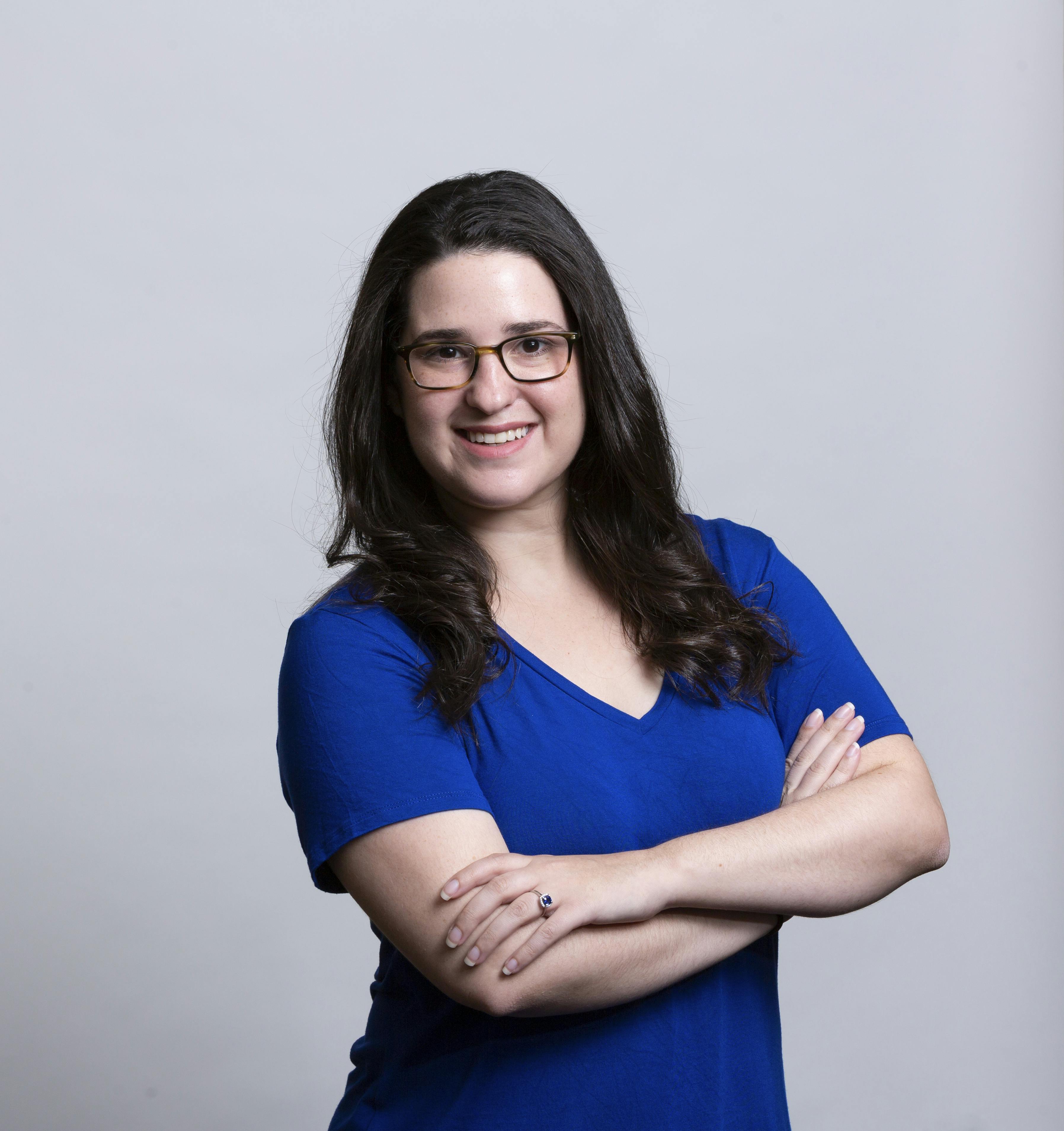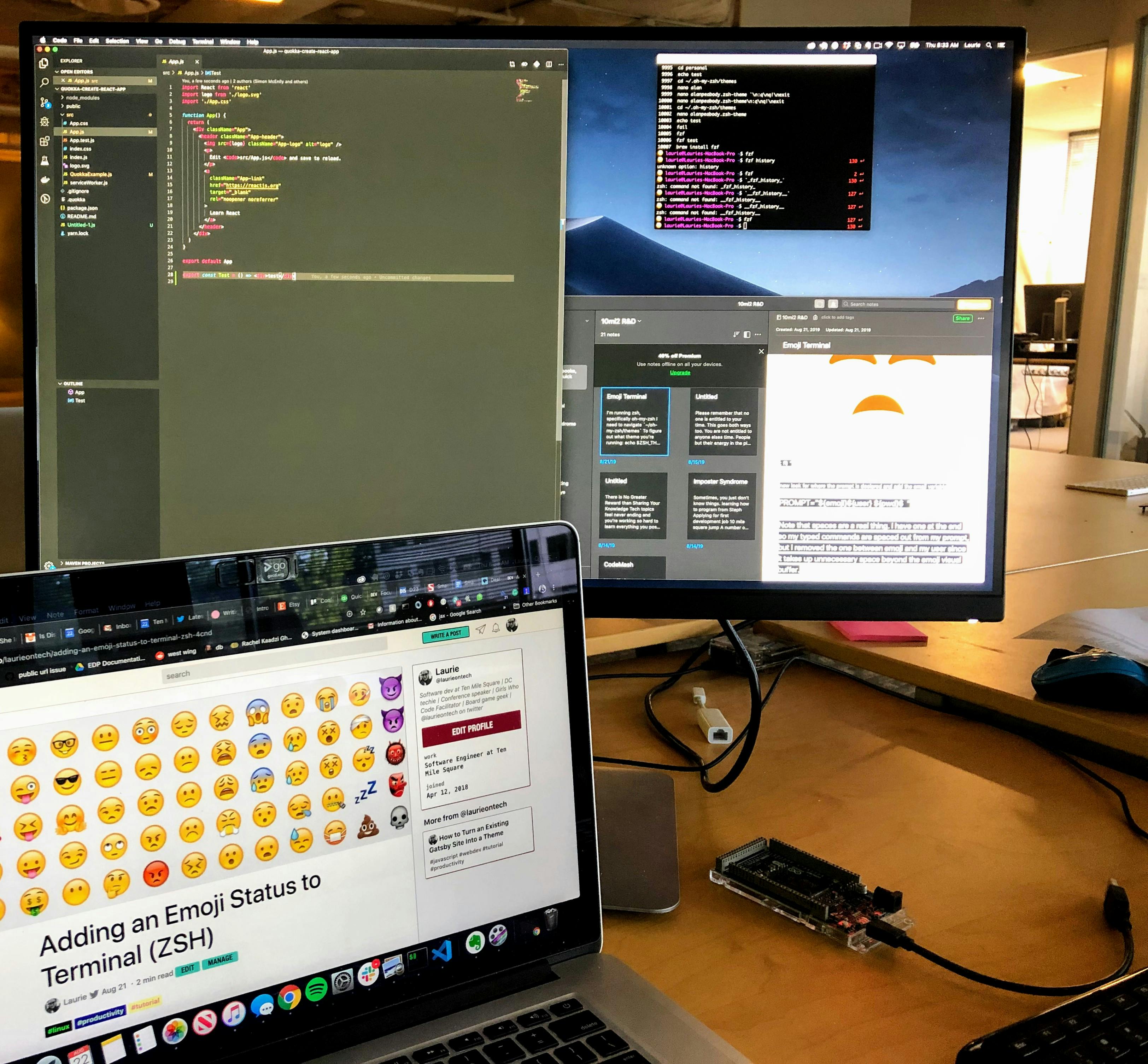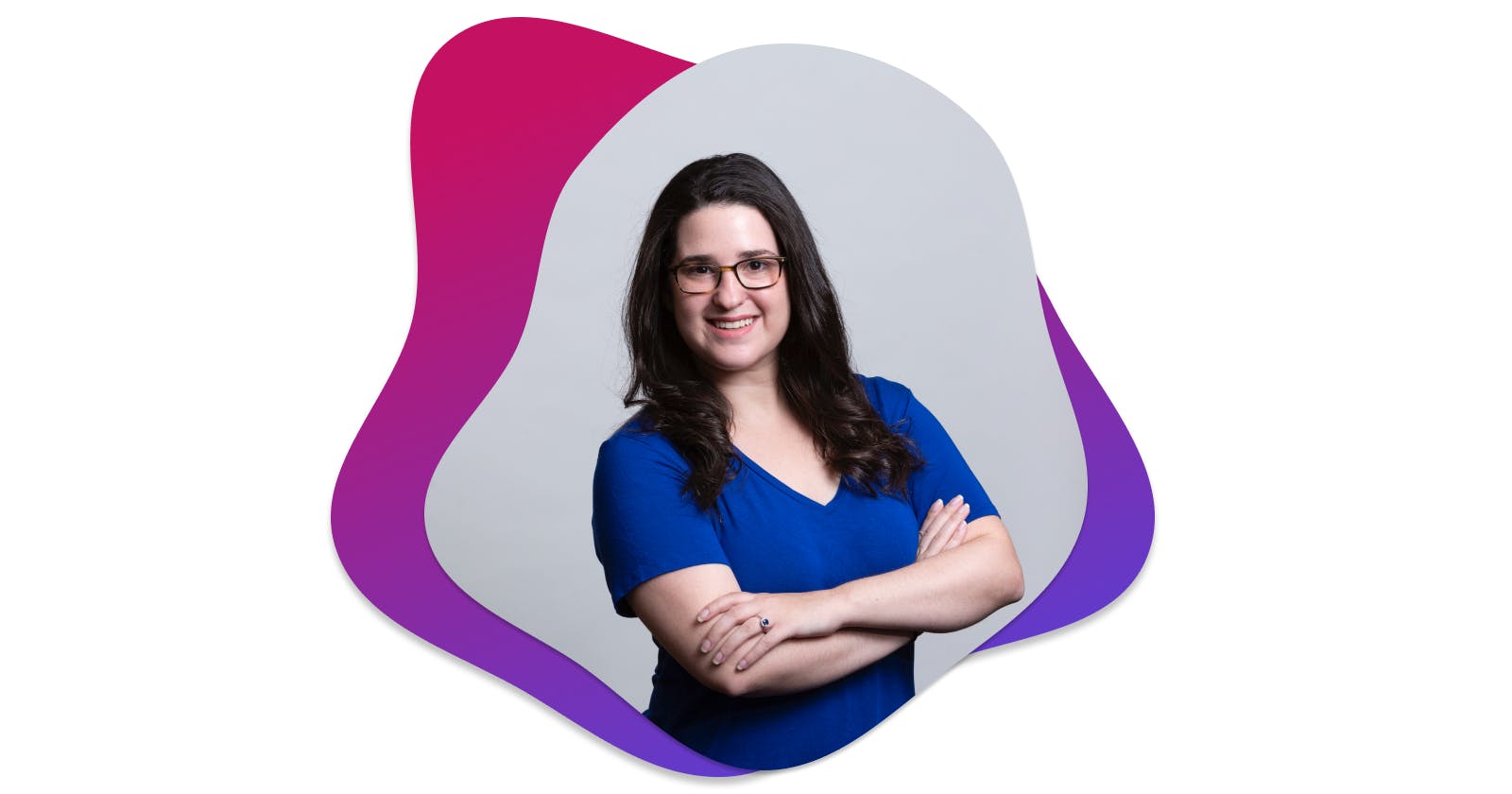Hello, Awesome 👋,
Thanks for taking out time to read this interview. This series is all about talking to the awesome women in tech and understanding the current health of the tech industry. If you want to share your story, please reach out to me at bolaji@hashnode.com.
Today, we'll be interviewing Laurie Barth 👩💻 .
Laurie is a software engineer who started as a mathematician. She currently works as a software engineer and consultant with Ten Mile Square Technologies in the Washington DC Metro area. She travels around speaking about the variety of technical challenges she has faced in her career and she involves herself in local technology groups including facilitating a Girls Who Code club.
I interview leading women developer every week and showcase their history, opinions and advice on the tech. In case you missed our previous interviews, check out the " She Inspires " series on Hashnode.
Also, if you find this interview useful, please don't forget to share with your friends and colleagues. 😃
Please tell us a little bit about yourself. How and when did you venture into tech?

Laurie: Oh goodness, where to begin! I'm a software engineer for Ten Mile Square Technologies. I've been in the industry for almost 10 years now. I started when my college internship boss gently forced me to take an intro to CS class. I ended up really enjoying it, shocker that the girl who loved jigsaw puzzles and logic quizzes would like CS🤦🏻♀️. I didn't end up as a full-time developer until a few years later, but I stayed in tech adjacent roles from then on!
What difficulties have you faced on your way in tech? Have you ever felt like you were not treated as equal?
Laurie: It's been a mixed bag if I'm honest. I've had a few bosses who certainly let my gender come into play. Those have been hard and disappointing experiences. On the other hand, I tend to stand out a bit! That gives me a great platform to showcase my skills and my viewpoint.
If there’s a bias women face, why do you think it is still there, in the 21st century? What are some things people and organizations could do to change this?
Laurie: This is a very complicated question, and I only have bits and pieces of the history, so I'm likely not qualified to answer it! But there are wonderful people doing work in this space. And it isn't just women who are underrepresented. It's black men, and disabled people, and scores of others.
You started as a mathematician Laurie, why and when did you make the switch to tech?
Laurie: It's all the fault of that internship boss! I joke, but I'm also a bit serious. I had always loved math, but I never expected to make a career out of it. I didn't want to be an actuary or a Ph.D. I planned to go to law school, but learning to code changed my trajectory. It gave me an exciting and valued career without graduate school. Though I then went on to get my masters anyway, go figure.
You work at Ten Mile Square Technologies, can you tell us a bit about your company and your work there?
Laurie: I'd love to! Ten Mile is a small consulting firm based in the Washington DC area. We work with companies large and small to solve whatever technical problems they have. As a result, I joke that I don't have a tech stack, my stack is whatever the client tells me it is. Part of what is great about working here is all the different work I've gotten to do over the past 3 years. Hardware, front end, back end, database design, technical assessment, DevOps, it's really a never-ending list! And what's more, is they make a point to care about my interests. That's why I've been able to do so much speaking and blogging, they support it.
You love teaching Laurie and facilitate a GirlsWhoCode club, why?
Laurie: There is so much to love about it, but I think it comes down to feeling like the time I spent learning things is having exponential benefits. My goal is that I can shorten that learning time for the next person down the line. So they can focus on the problem I haven't gotten to yet. And in terms of Girls Who Code, it's amazing to see the varying experiences of the kids who come in. My club operates out of a public library so they all come from different schools and they span a fair number of grades. Some of them have been playing around with coding for years, some know nothing about it, and they all teach each other something.
We see that you speak and teach at software conferences all over the world, how did you get into public speaking and how has it affected your career?
Laurie: I started speaking in 2017 when I saw a local conference looking for speakers on the topic of legacy software systems. That aligned really well with my experiences and I figured if I wanted to see more women represented on stage, I needed to be part of that! In terms of how it's affected me, it's been incredible. I've met so many incredible people from other companies, geographic areas, you name it. And I love attending conferences because I sit in talks about things I don't know. Half the time that data point comes in handy with a client down the road.
What advice would you give to aspiring programmers who look forward to speaking at meetups and/ or conferences?
Laurie: Go for it! In terms of the actual talk, I have three main pieces of advice I give to newcomers.
- Set expectations at the beginning of your talk about what you'll cover
- People can't listen and read at the same time, limit the number of words in your slides.
- Make your font really big and your diagrams as well. You'll likely underestimate how small things appear from seats in the back of the event.
What do you think needs to be done to encourage beginner developers to learn programming languages and continue learning?
Laurie: From what I've seen people are incredibly motivated. More so than ever before. It's more accessible to learn and getting better every day. It's up to us as an industry to recognize those skills, even if they were earned using a different approach than we're used to. And to make room for that enthusiasm.
Imposter syndrome is one problem developers face especially newbies, what is your experience with imposter syndrome, how did you manage yours and what advice do you have for anyone facing this currently?
Laurie: Imposter syndrome is not always straight forward. Sometimes it's as obvious as thinking you don't belong in a room you were invited to be in. Other times it's the fear of applying for a job that you don't think you're qualified for when you are. My best advice is to surround yourself with people who know your strengths and weaknesses. They can be a great push forward when you need it. And they'll be honest if it's a step you just aren't ready for yet, which is perfectly ok.
Rejection emails is another thing that motivates imposter syndrome and depression amongst developers especially intermediates. How did you manage this effectively during your "job-hunting" days?
Laurie: Rejection comes in all forms. Speaking has it, blogging has it, and of course job hunting. There are a couple of things I'd recommend.
- It's ok to be bummed and process those feelings. Just don't stick in that state for too long.
- It's a numbers game. You never know exactly what they're looking for. However, if you keep applying and meeting people in the industry and sharing your content, someone will eventually say yes.
You write a lot Laurie, what is your super power and what advice do you have for a newbie who wants to get started with technical writing?
Laurie: I do write a lot! I went to a liberal arts college and one of my majors was government. I've written a whole bunch of papers over the years. I consider it my most critical skill if I'm honest. My best advice for those who want to start writing is to learn something and take notes while you do. Then polish that up a bit and share it! Someone likely learns the same way you do, and it will be valuable to them. Just know that it doesn't have to be perfect.
What advice would you give to aspiring programmers who look forward to working for companies like Google or Facebook?
Laurie: I've never worked for one of those companies, so I'm probably not the best person to give advice there. What I would say is that you should look for the job and company that best fits you. The name may look flashy, but there are tons of companies out there!
What is the best advice someone has given you that has helped you in your career?
Laurie: Never be afraid to ask questions.
Aside coding, what do you do for fun?
Laurie: I love jigsaw puzzles and board games and legos. I'm a big movie buff. And I like to bake!
What are your favorite programming tools?
Laurie: VS code is a great tool. Postman has always been helpful when building APIs. I really like oh-my-zsh for terminal. There are an infinite number, but those are three that popped into my head.
What does your development environment look like? Could you please share a photo? :)

All kinds of weird stuff here, I just opened some windows. The laptop has chrome with one of my articles open. The monitor has vs code (monokai theme), terminal and evernote. In the corner, you can see an Arduino DUE and a separate keyboard.
Finally, what would be your message to women trying to get into technology?
Laurie: Figure out how you learn best and go from there.
Did you find Laurie's story useful and inspiring?
Write down your thoughts in the comments section below and don't forget to share. You can follow Ire on Twitter.
See you next time and keep trailblazing 👋.

